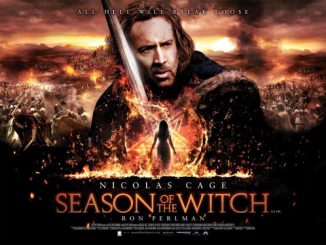Dream Scenario (2023)
Directed by: Kristoffer Borgli
Written by: Kristoffer Borgli
Starring: Julianne Nicholson, Nicholas Cage

DREAM SCENARIO
Directed by Kristoffer Borgli
Nicolas Cage is the man of everyone’s dreams in this high-concept black comedy. Here, he plays Paul, an aging family man and professor who has long since lost his enthusiasm for life. One day, a version of him starts visiting people in their sleep, including his ex-girlfriend, his students, and total strangers. Only he’s not doing much in them – as in life, he’s simply there, listlessly walking around while bad things happen around him like a killer runs loose or the world ending. At first, he’s weirded out about it – who wouldn’t be? But he soon starts to enjoy the fame and recognition, even seeing it as a means to get the book he’s been thinking about out there. However, things take a darker turn when dream Paul begins to do dark, violent things waking Paul never would – think Freddy Krueger in a boring jumper. Soon the mob wants him driven out of public life.
At face value, Dream Scenario offers a timely attack on modern “cancel culture” along with college campus activism – and these are very much part of it. Especially in act two when his loveable public image starts to unravel and his students, among others, feel unsafe in his presence. Some of the satire is heavy-handed – a scene where the “traumatised” teens receive CBT is funny but perhaps too cartoonish for the reality writer/director Kristoffer Borgli has created. I’m also not sure it has much new to say about annoying social justice movements beyond depicting them. Still, there are moments of brilliance, such as Paul sharing the mob’s appropriation of the language of therapy for his own causes and attempts to pitch him to different markets. As per the mob, his PR team care more about what he represents than who he is – they are another obstacle to him controlling his own image. And while they may call him “the most interesting man in the world,” they’re as uninterested in his musing on biology as the bored Zoomers in his classroom.
Beneath this contemporary satire, the film has a timeless character study at its core. Like Borgli’s previous black comedy Sick of Myself, which skewed influencer culture through the competitive victimhood of two narcissists, Dream Scenario is not about bad things happening to good people. Rather, it is a hubristic tale of a supposedly principled man who compromises the values he claims to hold dear as soon as he thinks he can get what he wants. But more than that, it looks at middle-aged boredom and unfulfilled potential. However, for all that Paul insists on wanting to be known for his work, it’s clear he hasn’t done any. He isn’t making an effort at home and repeatedly evokes a book he hasn’t started despite coming up with it decades ago. Outside the dreams, his best chance is to piggyback on the work of an old friend he has accused of piggybacking on him. Thus many others have found, when you build your career on nothing, then it can also end for nothing. As Paul begins to appear in the dreams of everyone except his wife, whose fantasies he dismisses, it also asks what keeps the spark alive. On that point, this has one of the most awkward sex scenes committed to film – producer Ari Aster would be proud.
Although we’re never really told why the dreams start, the framing of Jungian archetypes and evolutionary biology suggest that the collective unconscious, or the herd, needs an enemy. In this case, it’s Paul’s shadow persona—a side of his psyche that he fails to engage with even after it manifests his embittered, angry side. And here’s where Cage gets to have some fun. In some ways, he’s the sort of actor you don’t want to play an unremarkable everyman. He’s known for manic, larger-than-life parts – heck, his yelling has become a meme he’s definitely in on. Here, his performance is mostly restrained, and he finds a sadness in a life most people would want. And while I never forgot I was watching him, there’s something powerful about seeing an actor known for his physicality crushed below the weight of life’s humdrum. It stands alongside other more mature Cage outings of recent years, giving depth to the family scenes: a source of his malaise and his best way to redemption.
It doesn’t all work. Like Paul, I feel like the movie doesn’t reach its potential – giving us a great idea but falling short of the weirdness we’d doubtlessly get from Charlie Kaufman and Spike Jonze who also combine surrealism with self-loathing and existential anxiety. Borgli gives the dreams a weightless beauty and there are some striking images involving alligators and arrows. Moreover, without specifics, the third act was the least successful, with some contrived drama and too many new ideas introduced in too short a space of time. All the plot beats are there, though the circadian rhythm is off and they’re passed over too quickly to really land. Yet its closing moments of transcendent beauty and perfectly chosen credits song redeemed it.






Be the first to comment